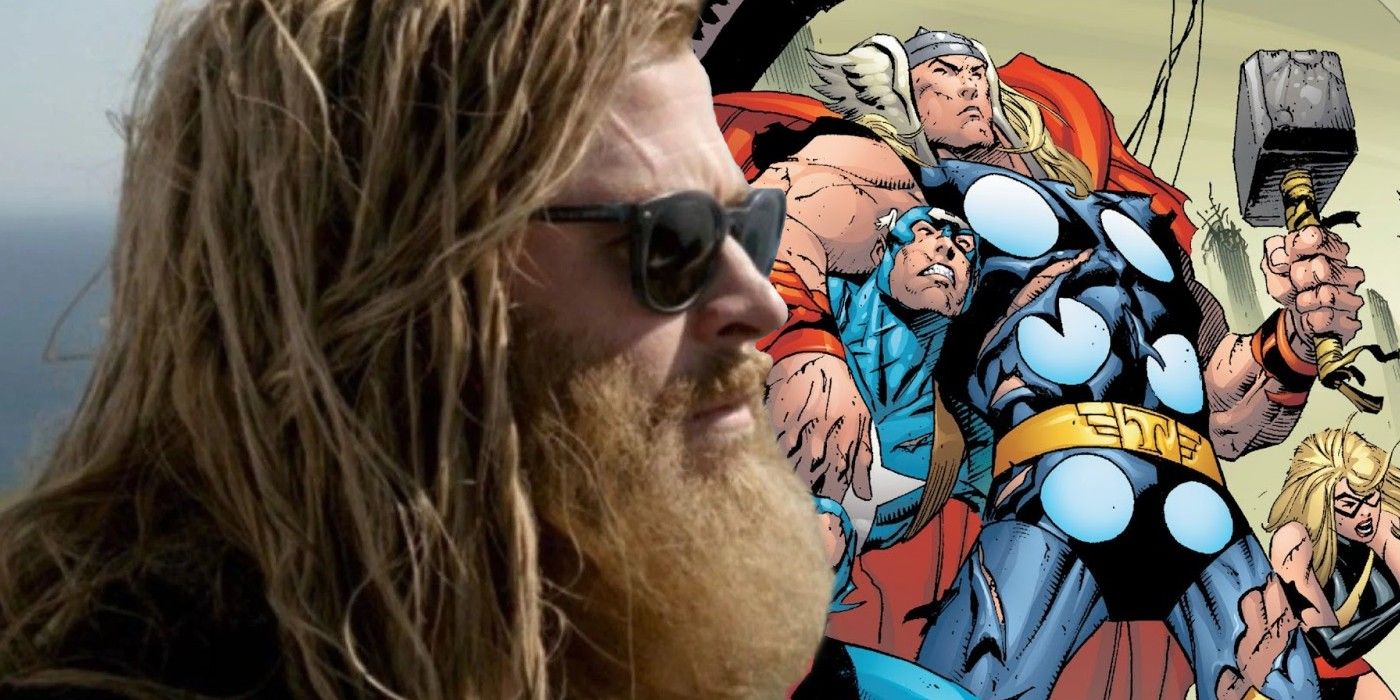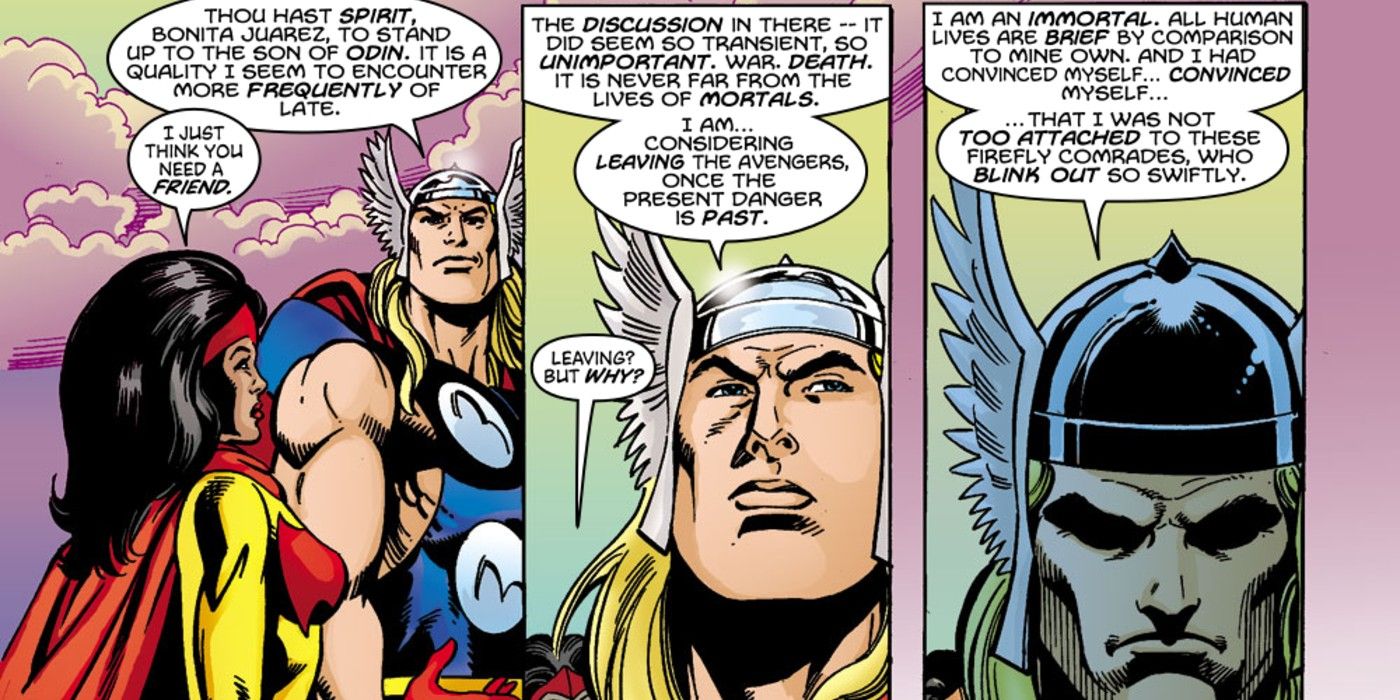Apparently even the gods can get depressed although Marvel Comics Thor's experience with depression differed greatly compared to his downward spiral in the MCU. The famous Asgardian and Avenger, known for his strong, jovial and optimistic demeanor, pondered his own failures and heavy issues such as the mortality of his friends and this world he's chosen to protect. Whether the villains are Thanos or Kang the Conqueror, the God of Thunder is eventually motivated out of his prison of sadness thanks to a new sense of purpose and the very people he's so afraid of losing.
Although he originally appeared in Journey into Mystery #83 (1962), the character created by Stan Lee, Lee Leiber and Jack Kirby has lived for thousands of years, inspiring myth and legend from his adventures on Midgard and other worlds within the Ten Realms. Originally Thor's punishment became his second home as his time on Earth and fighting alongside the Avengers not only taught Thor lessons in humility and how to be a true hero, but it also gave him friends, some he even considered like family. But the reality that he would age slower than his teammates, friends and even loved ones on Earth would linger in the back of his mind, a painful truth that becomes unavoidable during Kurt Busiek's iconic Avengers run.
When the Avengers usual gauntlet of world-threatening villains and catastrophes are interrupted by the appearance of Kang the Conqueror, the heroes are stunned by their long-time enemy's request that the Earth be surrendered to him, and by his threats of grave consequences if the Avengers should interfere. While Kang's armies seek to invade Europe during "the Kang War," they are opposed by international armies, which include support from the Avengers. Traumatized by an earlier incident where he confronted zombie-like versions of Avengers, including long-time ally Captain America, Thor confides in his teammate Firebird that he plans to leave the Avengers following Kang's defeat, citing that he has become too close to his mortal compatriots.
In Avengers: Endgame, Thor seeks to redeem himself for not killing Thanos and thus dooming half of the universe's population, chopping off the Titan's head in a fit of disappointment and anger after learning he has destroyed the Infinity Stones. When Hulk and Rocket Raccoon go to recruit Thor for the time heist, Thor has become an obese, disillusioned shadow of his former self, barely able lift Stormbreaker or convince others that he is doing fine. Convinced to join due to promises of beer and snacks, Thor becomes the butt of jokes as he hopes his participation will help him find purpose and subconsciously allow him to finally heal.
Regardless of the format, it is the people that they align themselves with that help Thor overcome his depression. In the comics, Firebird constantly tries in vain to give Thor reasons to stay, but following her heavily heated criticism of Thor and his behavior, he realizes that his bonds with the Avengers are important because they won't last forever. Therefore they require his attention, not his neglect. In the movies, a conversation with his mother Frigga in the past helps Thor accept his flaws, acknowledge others' losses and reclaim his sense of worthiness. Instead of trying to pretend he is above his feelings, his acceptance of them complete him instead of weakening him, just in time for the film's signature final battle.
With both Thanos and Kang defeated, Thor celebrates the victories alongside his teammates, having vanquished real and personal demons thanks to his legendary support system. While the comics Thor spoils his teammates with food and drink from Asgard, the MCU Thor seeks new purpose outside of Earth, joining the interstellar Guardians of the Galaxy. Although he wields control of thunder and lightning, Thor's heart is quite human and its strength is greater than any force in this universe or any other realm.


